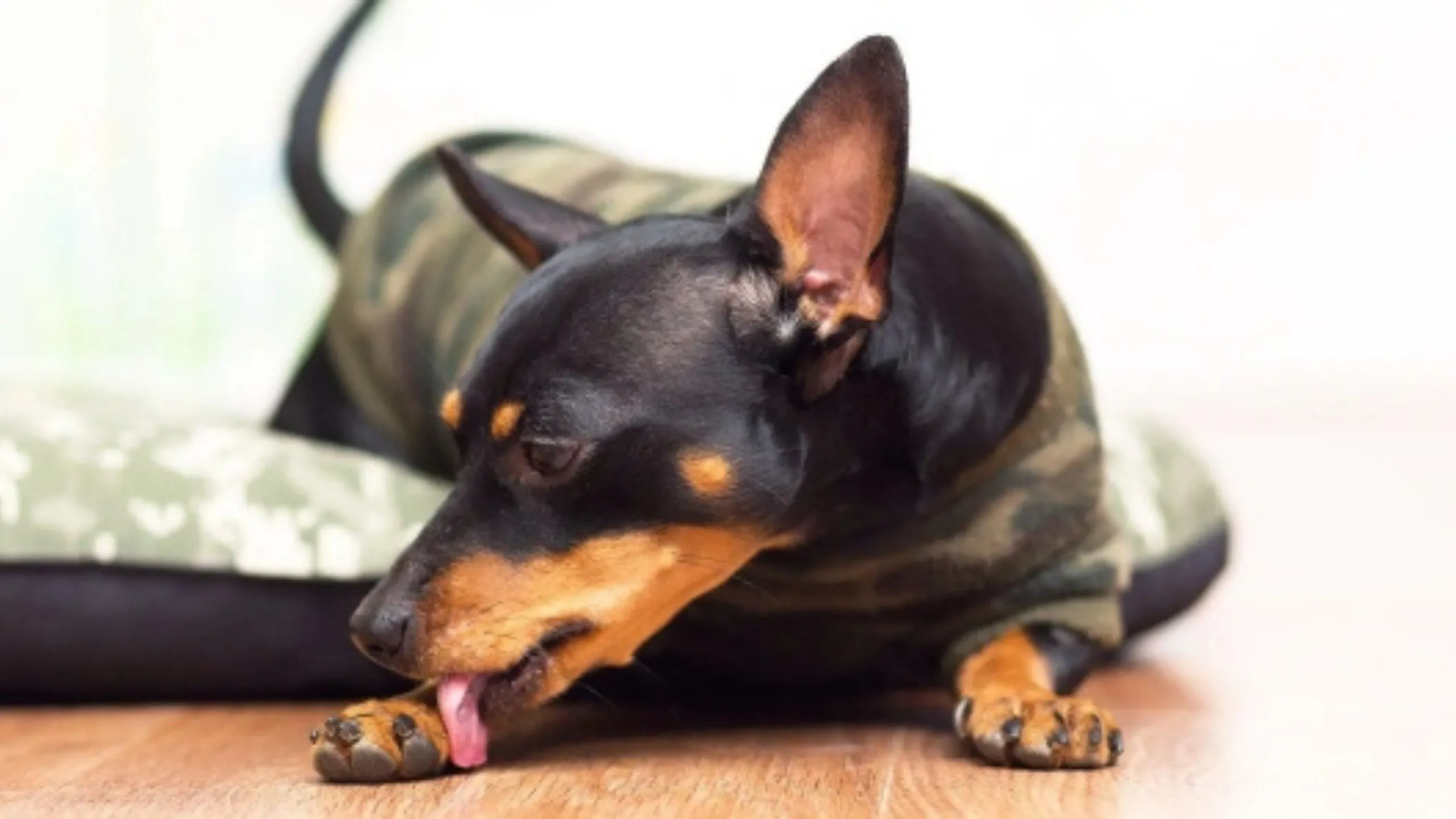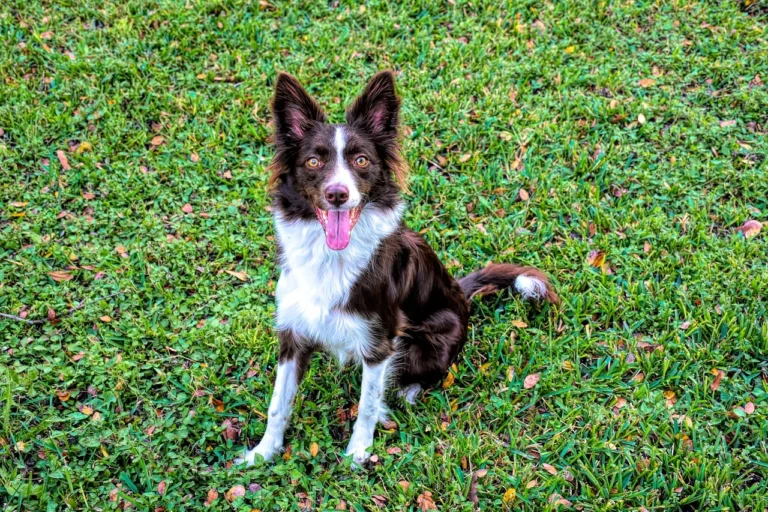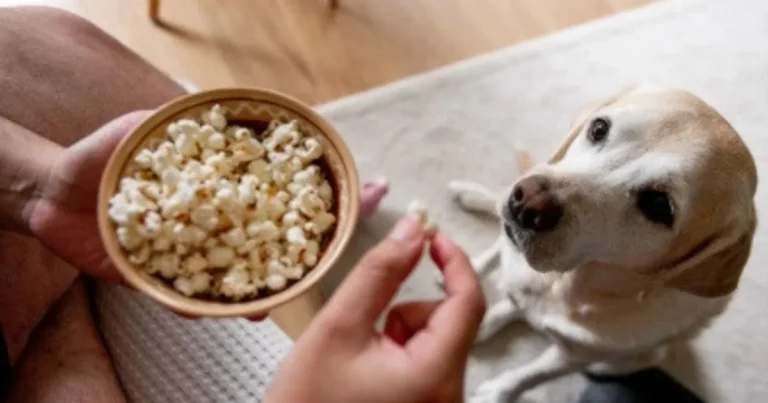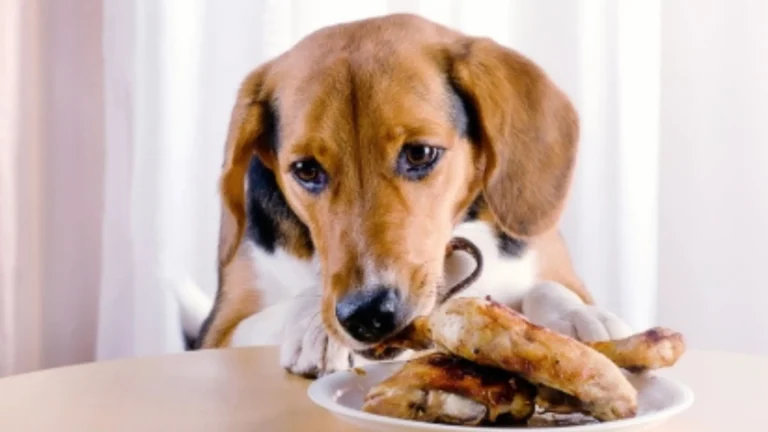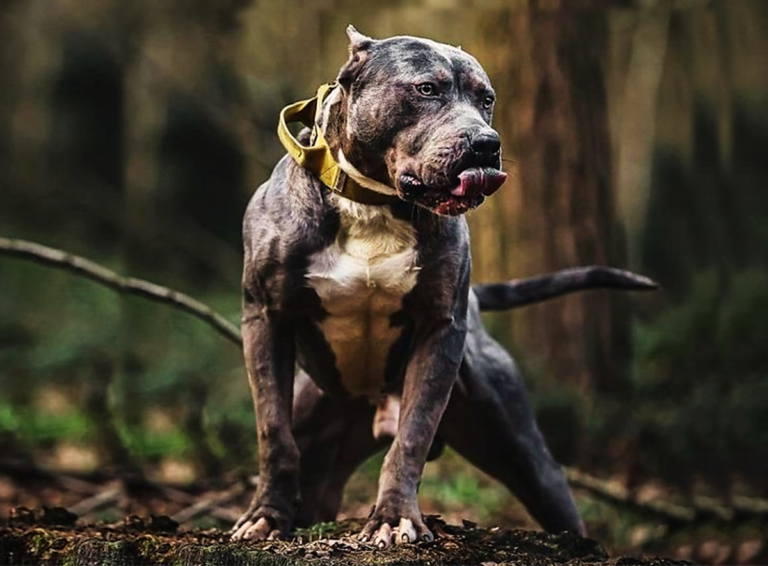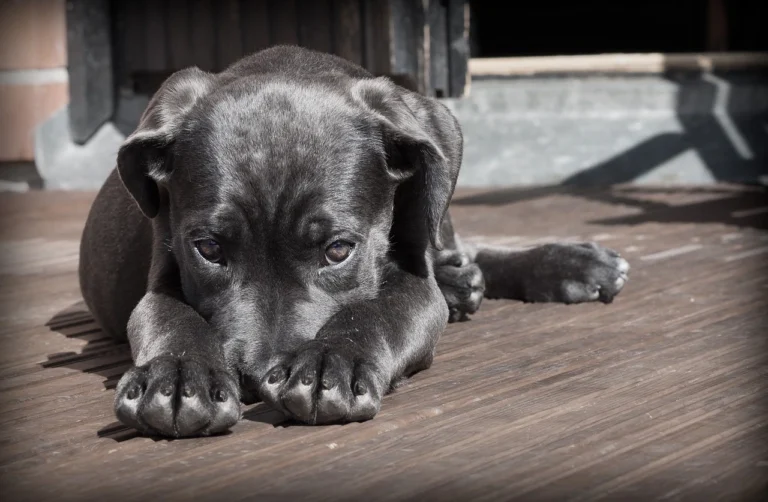Why Is My Dog Licking His Paws? Common Reasons Explained
Table of Contents
Last night, I watched my Golden Retriever Max obsessively licking his paw. I knew something was off. As a pet owner, these moments of worry can be overwhelming. Dog paw licking might seem like a simple grooming behavior, but it can signal deeper health concerns that require your attention.
Understanding why your dog is licking his paws is crucial for their well-being. While some occasional paw licking is normal, persistent or excessive licking could indicate an underlying issue. This guide will help you decode the mystery behind your furry friend’s behavior.
Every dog’s paw-licking habits are unique. Some dogs might lick due to minor irritations, while others could be experiencing more serious health challenges. By recognizing the signs and potential causes of why your dog is licking his paws, you can take proactive steps to ensure your pet’s comfort and health.
In the following sections, we’ll explore the various reasons behind this common canine behavior. We’ll look at medical conditions to environmental triggers. This will help you become a more informed and attentive pet parent.
Understanding Normal vs. Excessive Paw Licking in Dogs
Dogs groom themselves, and paw licking is a big part of it. Knowing when it’s normal and when it’s not can help keep your dog healthy. It also helps spot any hidden problems.
What’s Considered Normal Grooming Behavior
Normal paw licking is short and rare. Your dog might lick their paws after:
- Walking on dirty surfaces
- Removing small debris
- Cleaning minor dirt or dust
- Basic self-maintenance
A quick grooming session lasting a few seconds is usually harmless. It’s a natural part of a dog’s cleaning routine.
Signs of Problematic Paw Licking
Excessive paw licking can mean deeper health issues. Watch for these warning signs:
- Persistent licking lasting several minutes
- Redness or inflammation between toes
- Hair loss around paw areas
- Visible wounds or skin changes
- Compulsive licking that interrupts normal activities
When to Be Concerned About Your Dog’s Paw Licking
The causes of paw licking can vary from minor to serious. If your dog’s licking goes on for a long time or gets aggressive, see a vet. Chronic paw licking might indicate allergies, infections, or psychological stress that need a vet’s check.
Keeping an eye on your dog’s paw-licking can help catch health issues early. It ensures your furry friend stays comfortable and healthy.
Why Is My Dog Licking His Paws: Medical Causes Revealed
Dog paw irritation can come from many medical issues. These issues make dogs lick their paws a lot. It’s important to know what’s causing this to help your dog feel better.
Excessive paw licking can be a sign of health problems in dogs. These problems can be mild or serious. They need to be checked by a vet.
- Allergic Reactions: Inflammatory responses can cause intense itching and skin sensitivity
- Chronic Pain: Joint or muscle discomfort might lead to persistent paw licking
- Neurological Issues: Nerve-related problems can trigger compulsive licking behaviors
Your dog’s paw licking might indicate several potential medical conditions:
- Inflammatory skin disorders
- Autoimmune diseases
- Hormonal imbalances
- Nerve or muscle injuries
It’s crucial to get a vet’s help if your dog keeps licking their paws. A vet can find out why and help your dog get better.
Early detection and intervention are key to managing dog paw irritation and preventing long-term health complications.
Allergies and Environmental Triggers
Dog paw licking can be a sign of allergies. These allergies can make your dog very uncomfortable. They can come from many sources, like the environment and what they eat.
Knowing about different allergies helps you find what’s bothering your dog. This way, you can make them feel better and stop them from licking their paws so much.
Environmental Allergens and Seasonal Changes
Environmental allergens might make your dog lick their paws. These include:
- Pollen from grass and trees
- Dust mites
- Mold spores
- Seasonal ragweed
These allergens can make your dog itch a lot. This happens most in spring and fall when pollen is everywhere. Dogs lick their paws to try and feel better.
Food Allergies and Sensitivities
Food allergies can also make dogs lick their paws a lot. Common culprits are:
- Beef
- Chicken
- Dairy products
- Wheat
Getting rid of these allergens from your dog’s food can help a lot. It can make them more comfortable and stop the paw licking.
Contact Dermatitis from Household Products
Household items can also cause allergies in dogs. This leads to skin problems and paw licking. Things like:
- Cleaning chemicals
- Carpet treatments
- Laundry detergents
- Garden pesticides
By keeping your dog away from these, you can lessen their discomfort. This can also stop them from licking their paws too much.
Injuries and Physical Discomfort
Dog paw irritation can come from many physical injuries that make them lick their paws too much. Knowing what causes this helps you find and fix your dog’s discomfort fast.
Common physical injuries that make dogs lick their paws include:
- Cuts and abrasions from rough surfaces
- Puncture wounds from sharp objects
- Torn or broken nails
- Foreign objects lodged between paw pads
Your dog might get paw irritation from walking on hot pavement, sharp rocks, or finding thorns and broken glass. Small wounds can get infected if not treated, so it’s important to check their paws often.
Chronic conditions like arthritis can also make dogs lick their paws a lot. The pain and swelling might make them lick as a way to feel better. Older dogs often have joint pain that shows up as more paw licking.
Signs of possible paw injuries include:
- Continuous licking of one specific paw
- Visible swelling or redness
- Limping or reluctance to walk
- Whimpering when paw is touched
Seeing a vet quickly can stop small injuries from getting worse. Always check your dog’s paws after they go outside to find and fix any issues early.
Infections and Parasites That Cause Paw Licking
Dogs may lick their paws too much due to skin issues. These problems could be infections or parasites. Knowing about these is key to keeping your dog’s paws healthy.
Bacterial and Fungal Infections
Dogs can get bacterial and fungal infections. These infections make them itch and lick their paws a lot. It’s their way of trying to feel better.
- Bacterial infections often appear as red, swollen areas
- Yeast infections typically cause persistent itching
- Fungal growth can create crusty or scaling skin patches
Common Parasites Affecting Dog Paws
Parasites are another big reason for paw licking. These tiny invaders can really bother your dog.
| Parasite Type | Symptoms | Potential Treatment |
|---|---|---|
| Fleas | Intense scratching, visible tiny dark insects | Topical treatments, oral medications |
| Mites | Hair loss, skin inflammation | Prescription antiparasitic medications |
| Ticks | Visible attachment, potential disease transmission | Manual removal, preventative medications |
Secondary Infections from Excessive Licking
When dogs lick their paws a lot, they can get more infections. Constant moisture and friction can break down protective skin barriers. This lets bad germs grow.
It’s very important to get your dog to the vet if they lick their paws too much. A vet can find out what’s wrong and help prevent bigger problems.
Behavioral and Psychological Reasons
Dogs often develop anxiety that shows up as compulsive behaviors like excessive paw licking. Knowing what triggers these behaviors can help meet your dog’s emotional needs.
Anxiety in dogs can come from many sources. This includes changes in their environment, being separated from their owners, or past traumas. Your dog might lick their paws to calm down when they’re stressed or feeling overwhelmed.
- Boredom can trigger compulsive behavior in dogs
- Lack of mental stimulation leads to repetitive actions
- Stress and anxiety contribute to excessive paw licking
Compulsive behavior in dogs often shows deeper emotional issues. Veterinary behaviorists suggest several ways to tackle these problems:
- Increase daily exercise and physical activity
- Provide engaging mental stimulation toys
- Create consistent daily routines
- Consider professional behavioral training
“Understanding your dog’s emotional landscape is key to addressing problematic behaviors.” – Dr. Sarah Richardson, Veterinary Behaviorist
In severe cases, your vet might suggest special therapy or medication. This can help manage anxiety and reduce paw licking.
Treatment Options and Prevention Strategies
If your dog is always licking his paws, it’s important to find the right treatment. A vet can help figure out why and create a plan. Knowing why your dog licks his paws is key to managing it.
Medical Treatments
Vets offer several medical options for paw licking:
- Prescription medications for allergies
- Topical creams for inflammation
- Antibiotics for bacterial infections
- Antifungal treatments for yeast
Home Remedies and Management Tips
You can also manage your dog’s paw licking at home:
- Use dog-safe protective boots during walks
- Clean paws after outdoor activities
- Apply pet-friendly wound healing sprays
- Use Elizabethan collars to stop excessive licking
Preventive Measures
To prevent paw licking, take a holistic approach:
- Regular vet check-ups
- A balanced diet
- Reduce allergens in the environment
- Keep your dog mentally and physically active
Combining vet advice with home care can help manage and possibly stop your dog’s paw licking.
When to Seek Veterinary Care
Knowing when to take your dog to the vet for paw licking can prevent serious health issues. Excessive paw licking is not just a minor problem. It can be a sign of deeper health problems that need a vet’s help.
Look for these signs to decide if your dog needs a vet:
- Persistent and intense paw licking lasting more than a few days
- Visible skin changes like redness, swelling, or open sores
- Signs of pain or discomfort when walking
- Limping or favoring a specific paw
- Sudden behavioral changes related to paw licking
Vets can find the cause of paw licking through detailed checks. At your vet visit, expect a full physical check, skin scrapings, and tests. These help find allergies, infections, or other issues.
Acting fast is key. Waiting too long can cause:
- Chronic skin infections
- Potential secondary bacterial complications
- Increased discomfort for your dog
- More complex and expensive treatments
Trust your gut. If your dog’s paw licking seems off, it’s best to see a vet. This ensures your pet stays healthy and happy.
Conclusion
Figuring out why your dog licks his paws can be tricky. But it’s key to keep your pet healthy. Dog paw licking might mean they have allergies or something more serious.
Watching your dog closely can help spot problems early. Then, you can get them the right care.
Dogs lick their paws for many reasons. It could be because of their environment, health issues, or even their mind. Every dog is different, so a detailed approach is needed.
Your vet can find out why your dog is licking and suggest the best treatment. This will depend on what your dog needs.
Keeping an eye on your dog and acting fast is important. Regular vet visits, clean living spaces, and a caring home can help a lot. Most issues can be fixed with the right care and patience.
Your dedication to your dog’s health really matters. Being alert to changes in your pet’s behavior helps them stay happy and healthy. This way, they won’t have to deal with the pain of constant paw licking.

